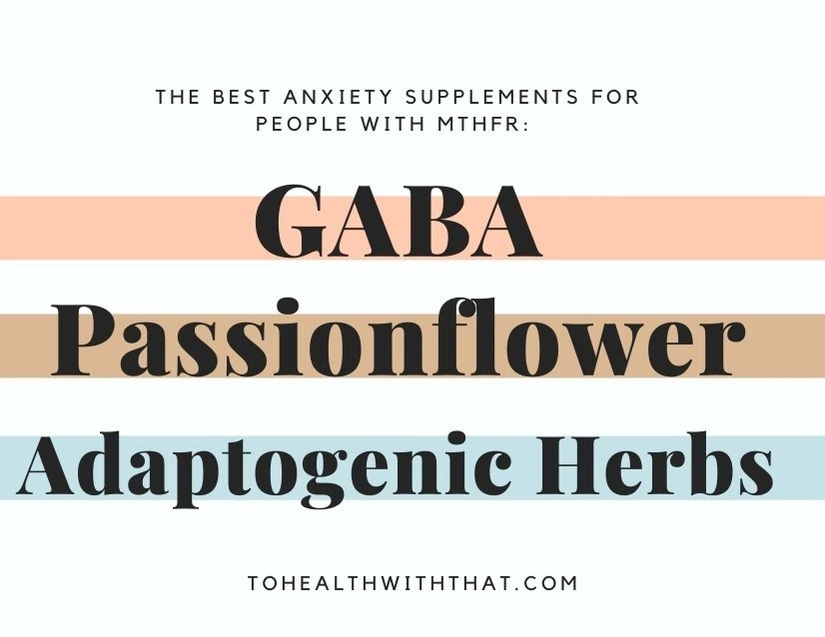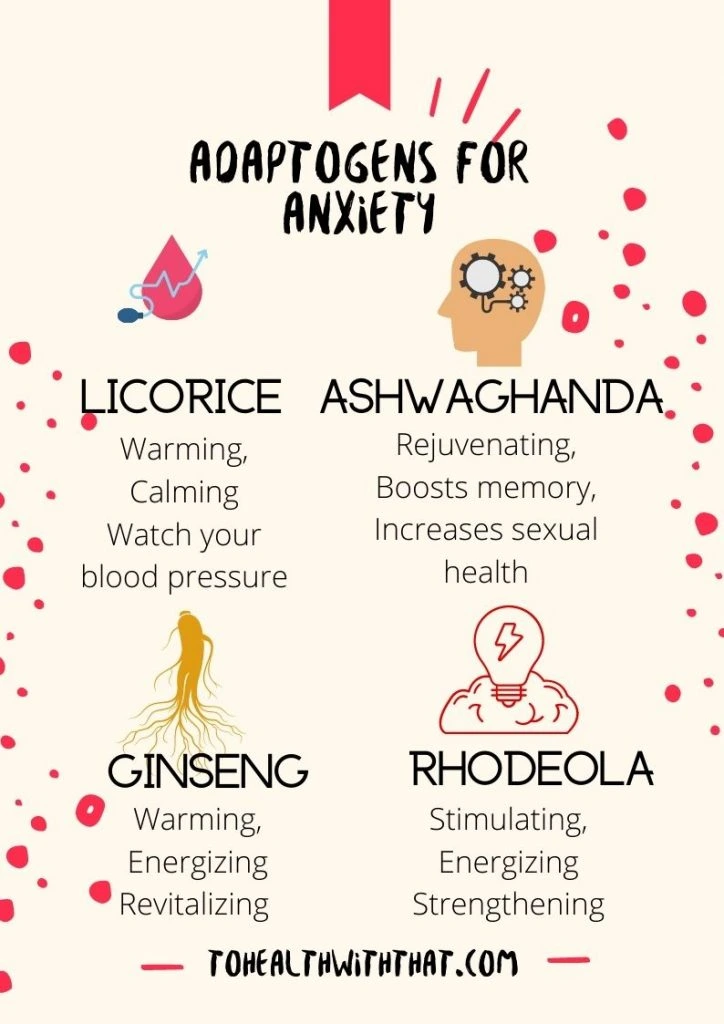We’ve talked about how MTHFR and Anxiety are linked a couple of times and had an interview with anxiety expert Jennifer Bronsnick, but all of that still doesn’t answer one of the biggest questions about anxiety that I get, which is, “What can I take to help me fix it?”
Good question. Obviously, everyone responds differently to different supplements, just like they do with medications, but here are a few of my favorites with some perspective about how they interact with MTHFR. I’m hoping it goes without saying, but balancing your methylation should always be the first step to dealing with anxiety. The rest of these are to clean up anything that is left.
GABA
GABA is, in my opinion, a highly underrated supplement. It is an inhibitory neurotransmitter, meaning it decreases the likelihood that the neuron will fire or send a signal. In the overactive brain of someone with anxiety, this is precisely what we want. It is also crucial to healthy brain functioning, with an estimated 60 – 75% of all neurons being GABAergic (or responsive to GABA.)
There has been a long-standing debate in the research world whether or not GABA that you take by mouth can possibly cross the blood-brain barrier. It is certainly well absorbed and blood levels rise sharply within thirty minutes of taking it, but it is much harder to demonstrate brain levels in a study. Research evidence and theorizing exist on both sides of the fence, but due to its potent clinical effects, I tend to think it either does cross the BBB or it takes action on something else which has a calming effect on the central nervous system and that is just as good.
GABA is probably most known as a sleep aid, helping to calm restless minds into healthy sleep. For anxiety, however, it reduces your feeling of actual anxiety and tension, but also helps to reduce cortisol levels, increase parasympathetic nervous system activity as measured through the vagus nerve (which means your nervous system is trending more toward relaxation than stimulation). The doses used in research tend to be between 30 – 100 mg. There is a great systematic review article about GABA and its effects on anxiety from Frontiers in Neuroscience here.
GABA is the type of supplement that I feel sneaks up on anxiety. What I mean by that is taking a dose regularly that is just below the dose that would make you sleepy (this might take some trial and error) isn’t necessarily going to change your life in that first week, but it does help to get your body into a rhythm of functioning without as much hypervigilance. I love this because it takes the edge off so that you can actually work on mindfulness or breaking mental bad habits in a more protected mental space – like the GABA makes it easier to see the things your mind is doing that it doesn’t need to be doing.
As an aside, GABA also shows remarkable clinical promise for Type I Diabetes, which is insulin-dependent. In much larger doses than those taken for anxiety, GABA helps to boost insulin response in fasting and non-fasting conditions and may help to both protect and restore pancreatic beta cells. While this has very little to do with anxiety in the way we tend to think of it, there is a link between anxiety and blood sugar.

MTHFR and GABA
There is only one relevant study pertaining to MTHFR and GABA levels. This study shows mice with MTHFR polymorphisms to have altered levels of many neurotransmitters, including GABA, in different brain segments relative to wild-type mice. This study showed that mice who were heterozygous for an MTHFR SNP showed altered levels of both GABA, which is inhibitory, and glutamate, which is excitatory, in the amygdala, cerebellum, hypocampus, and thalamus.
Passionflower (Passiflora Incarnata)
Outside of having one of my favorite names in all of herbal medicine, passionflower is remarkable as a calming and soothing agent for anxiety. It can be used for short-term anxiety, such as to help patients remain calm before dental or surgical procedures or long-term for such neuropsychiatric conditions as generalized anxiety disorder and post-traumatic stress disorder. In both cases, passionflower shows remarkable benefits.
A comparison study between liquid passionflower extract and the pharmaceutical drug oxazepam, which is a benzodiazepine, showed equivalent clinical effectiveness over a period of 28 days.
Passionflower has also been used to help people who are addicted to opiates to successfully withdraw. Studies showing passionflower as an addition to clonidine, which is the standard of care, demonstrate better handling of mental symptoms in the clonidine plus passionflower group than the clonidine alone.
Passionflower can be taken as a tea, a liquid extract, or as a capsule or tablet. As with all herbal medicines, quality matters and it’s important to find products that follow the highest standards of manufacture and testing.
While passionflower hasn’t been specifically studied for use in folks with MTHFR mutations, it works well clinically in a wide range of people, and I’ve seen great results in my own clients, the majority of whom have MTHFR polymorphisms. Also, it’s pretty easy to tolerate and side effects are not common.

Adaptogenic Herbs For Anxiety
Adaptogens are herbs that help the human body resist stressors of all kinds. They quite literally help us adapt to all manner of situations with grace and strength, both literal and metaphorical. The most well-known adaptogens are herbs like ginseng, ashwagandha, and licorice which might just as well come with a sub-heading that says “Strong Like Bull.”
While there is, sadly, no research specific to MTHFR and adaptogens, there is a literal boatload of research on adaptogens and anxiety. Ashwagandha, for instance, has been shown to reduce both the feeling of anxiety and also cortisol levels after 60 days in adults with a history of chronic stress.
In general, the effects of adaptogens on cortisol levels and conditions associated with excessive cortisol, including anxiety, fatigue, abdominal obesity, and metabolic syndrome, are extremely well known. These are wonderful therapies for the management of long-term stress and anxiety disorders, although they should be used with practitioner supervision and guidance.
Licorice, for instance, is one of my favorite herbs of all time, but it is known to elevate blood pressures and so is perfect for skinny, high-strung, anxious women like myself, but not a good option for someone who struggles with blood pressure or cardiac issues.
There are, of course, hundreds of other supplements for anxiety but these are three of my go-to staples. Don’t forget to sign up for the mailing list, or join our MTHFR community here.
MTHFR is a common genetic mutation that can contribute to anxiety, depression, fatigue, chronic pain, infertility, and more serious conditions like breast implant illness, heart attack, stroke, chronic fatigue syndrome, and some types of cancer. If you know or suspect you have an MTHFR variant, schedule a free 15-minute meet-and-greet appointment with MTHFR expert Dr. Amy today.
Book Your Appointment
